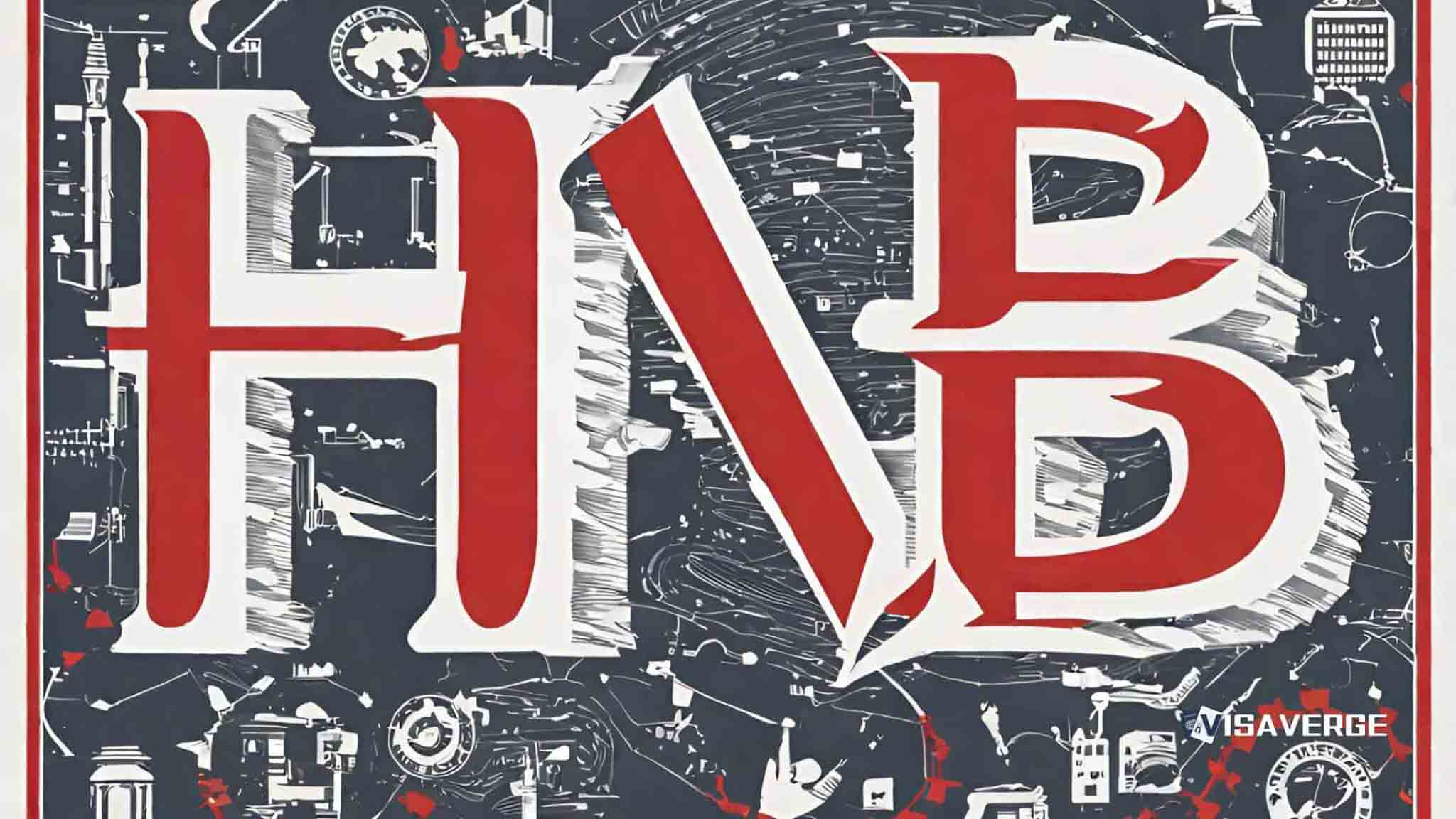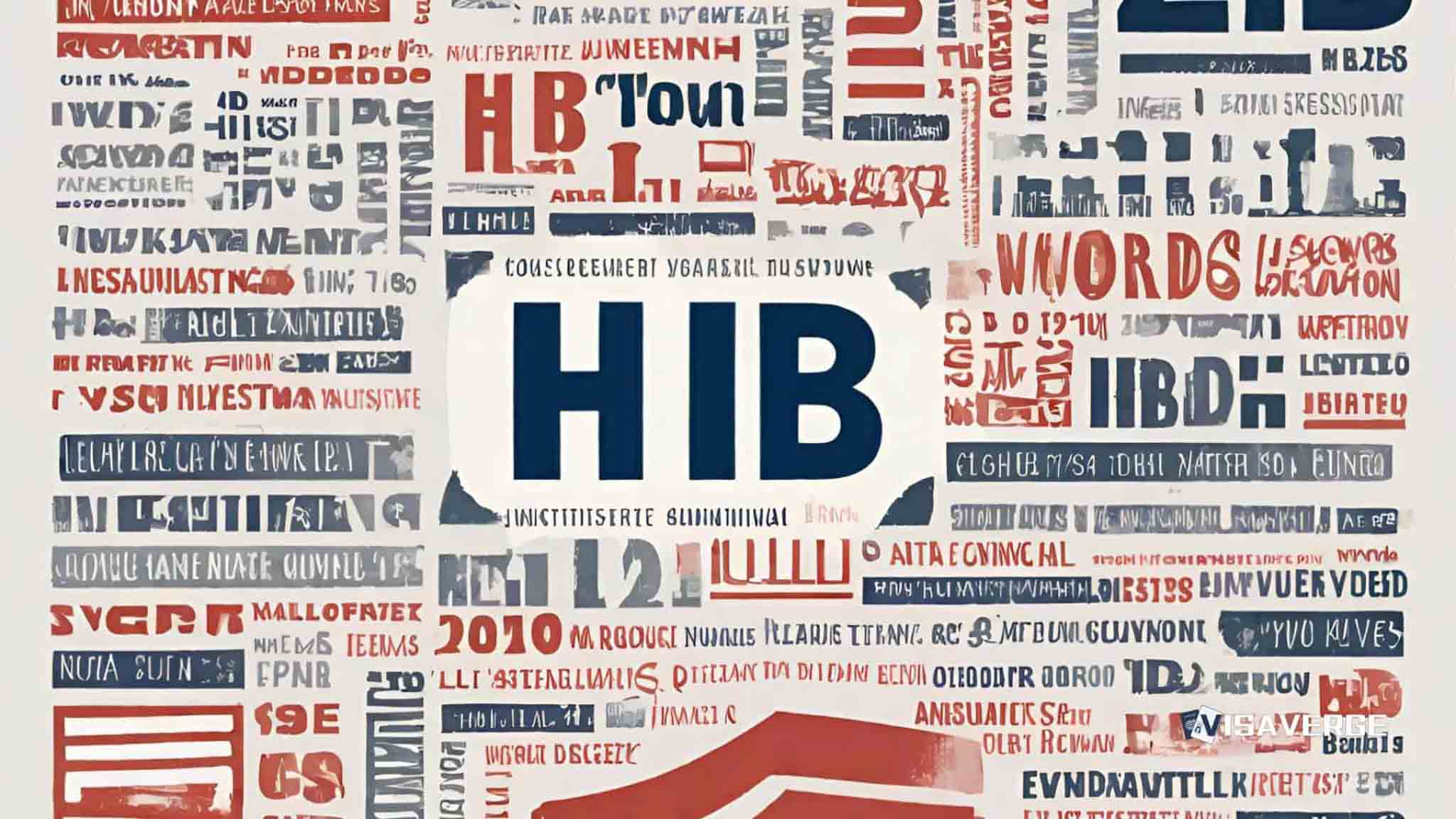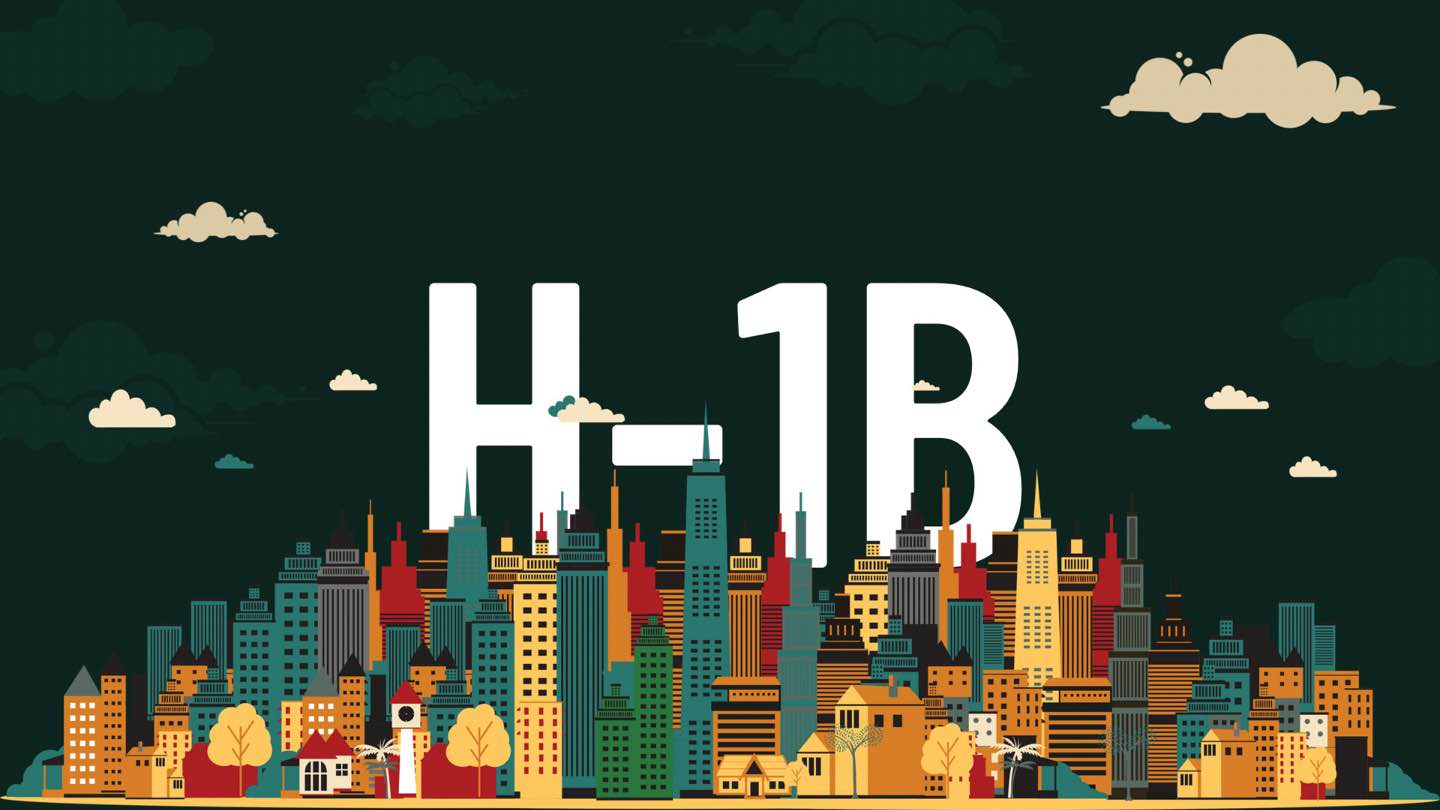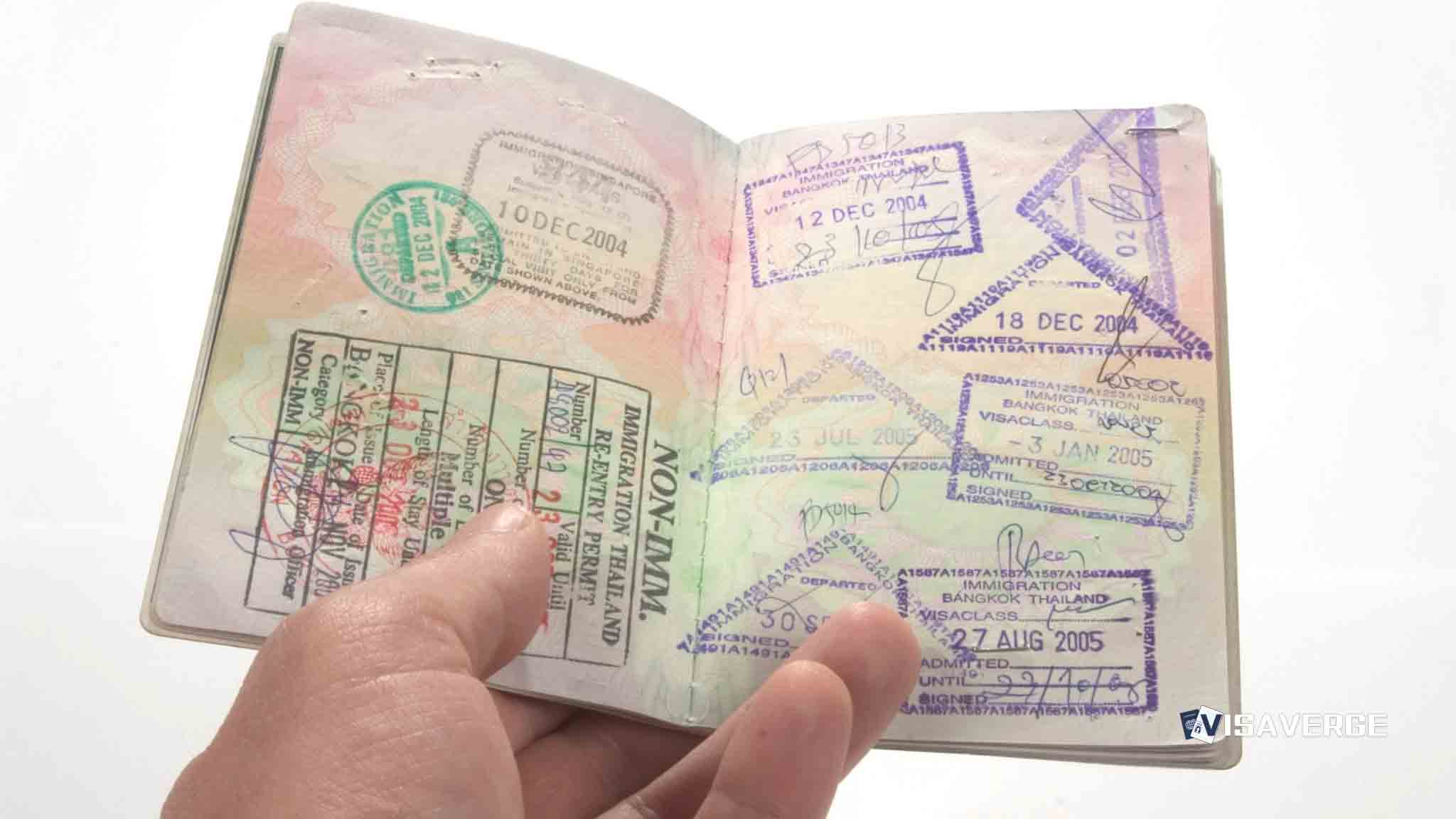Key Takeaways
• Indian nationals received 72.3% of H-1B visas in FY 2023, facing stricter scrutiny since April 2025.
• Green card applicants face retrogression and tougher residency proof requirements amid increased deportations.
• Visa appointments canceled, secondary inspections rise, causing delays and anxiety for Indian professionals and students.
Indian H-1B Visa and Green Card Holders Face Unprecedented Scrutiny Amid US Immigration Crackdown
Indian nationals living and working in the United States 🇺🇸 on H-1B visas and green cards are facing a new wave of uncertainty and anxiety as the Trump administration intensifies its crackdown on both illegal and legal immigration. Since April 2025, a series of administrative actions, public statements, and policy shifts have put Indian professionals, students, and families under the microscope, raising questions about the future of US immigration for one of the country’s largest and most skilled immigrant communities.

What’s Happening and Why Now?
The latest crackdown began with the US government imposing visa restrictions on several Indian travel agencies accused of facilitating illegal migration. This move quickly escalated, with prominent Trump allies and MAGA activists calling for similar action against the H-1B visa program—a program that overwhelmingly benefits Indian tech professionals. According to analysis by VisaVerge.com, Indians received 72.3% of the 386,000 H-1B visas issued in fiscal year 2023, making them the largest group affected by any changes to the program.
The Trump administration, led by President Trump and Vice President JD Vance, has made it clear that both illegal and legal immigration are under review. Vice President Vance recently stated that holding a green card does not guarantee indefinite residency, signaling a tougher stance even for those who have already secured permanent status.
Key Developments Since April 2025
- Visa Appointment Cancellations: In April, the US Embassy in India canceled 2,000 visa appointments over concerns about fraud, expanding investigations into agents suspected of abusing the visa process.
- Heightened Border Scrutiny: US immigration agencies have increased checks on H-1B and green card holders, especially those traveling abroad and re-entering the US. Many have faced longer inspections and, in some cases, overnight detentions at airports.
– Green Card Delays: The May 2025 US Department of State Visa Bulletin retrogressed the EB-5 (investor) green card category for Indians by more than six months, significantly delaying permanent residency for many applicants. - Public Pressure: After sanctions on Indian travel agents, calls for restrictions on the H-1B program have grown louder, with activists arguing that the program is abused by big tech companies to displace American workers.
No Formal Law Changes—But Real-World Impacts
As of May 22, 2025, no new laws have been passed to restrict the H-1B visa program or revoke green cards. However, the environment has changed dramatically:
- Stricter Documentation: US Citizenship and Immigration Services (USCIS) and other agencies have implemented tougher documentation standards for H-1B applications and are actively investigating fraudulent filings.
- Enhanced Inspections: Customs and Border Protection (CBP) officers are conducting more detailed checks on Indian H-1B and green card holders at US ports of entry.
- Travel Advisories: Immigration attorneys are warning Indian nationals to exercise caution when traveling abroad, as re-entry to the US now carries higher risks of secondary inspection or even denial.
How the H-1B Visa Process Works—And What’s Changing
The H-1B visa allows US employers to hire foreign workers in specialty occupations, such as technology, engineering, and healthcare. Here’s a step-by-step look at the process, with new challenges highlighted:
- Registration: Employers submit registrations for the annual H-1B lottery, usually in March.
- Selection: USCIS conducts a lottery and notifies selected registrants by the end of March.
- Petition Filing: Employers file H-1B petitions for those selected. This stage now involves increased scrutiny for documentation and potential fraud.
- Adjudication: USCIS reviews petitions. Officers are requesting more evidence and questioning the legitimacy of job offers and employer-employee relationships.
- Visa Issuance: If approved, visas are issued starting October 1. However, visa appointment cancellations and delays are more common.
- Travel and Re-entry: H-1B holders must carry extensive documentation when traveling. Many now face secondary inspection and longer wait times at US borders.
For official information on the H-1B process, visit the USCIS H-1B page.
Green Card Holders: New Risks and Responsibilities
A green card, or lawful permanent residency, has long been seen as a secure path to living and working in the US. But recent statements from US officials and new enforcement actions are challenging that assumption, especially for Indian nationals who make up a large share of employment-based green card applicants.
Key Changes for Green Card Holders:
- Proof of Residency: Green card holders must now provide stronger evidence of their ties to the US, such as property ownership, tax returns, and ongoing employment.
- Extended Absences: Those who spend long periods outside the US risk being accused of abandoning their residency. Without a valid re-entry permit, they could face removal proceedings.
- Border Questioning: Many green card holders report detailed questioning and secondary inspections upon re-entry, especially after trips longer than six months.
For more details on maintaining green card status, see the USCIS Green Card page.
Quantitative Impact: Who’s Affected?
- H-1B Visa Allocations: Indians received 72.3% of all H-1B visas in FY 2023. For FY 2026, USCIS selected 118,660 unique beneficiaries, with 120,141 registrations in the initial cap selection.
- Student Visas: India sent 331,602 international students to the US in 2023–2024, a 23% increase over the previous year.
- Deportations: Over 300 illegal immigrants have been deported to India in recent months, with a total of 15,157 since 2009.
- Green Card Retrogression: The EB-5 unreserved category for Indian applicants moved backward from November 1, 2019, to May 1, 2019, in the May 2025 Visa Bulletin, delaying many applicants’ path to permanent residency.
Real-Life Scenarios: What Indian Nationals Are Experiencing
- H-1B Holders: Many report anxiety about job security and long-term residency, especially those waiting for green cards. Some have faced denials or delays in visa processing, while others have been detained for hours at airports during routine travel.
- Green Card Holders: Families who traveled to India for weddings or emergencies have been questioned about their ties to the US and, in some cases, warned about possible loss of residency.
- Students: Indian students are seeing increased scrutiny of their visa applications, with some facing cancellations and concerns about campus racism.
Policy Implications: Who’s Pushing for Change and Why?
- Trump Administration: President Trump and Vice President JD Vance have made tightening immigration a central policy goal, arguing that it protects American jobs and national security.
- MAGA Activists: Figures like Laura Loomer have called for the H-1B program to be restricted or even ended, claiming it is abused by big tech companies.
- Tech Industry: US technology companies warn that limiting H-1B visas will harm innovation and competitiveness, as Indian professionals fill critical skill gaps.
- Indian Government: India is working with US authorities to protect legal immigration pathways and ensure fair treatment for its nationals.
Practical Steps for Indian H-1B and Green Card Holders
Given the current environment, Indian nationals in the US should take the following precautions:
For H-1B Visa Holders:
– Keep Documentation Ready: Always carry employment verification letters, recent pay stubs, and copies of your H-1B approval notice (Form I-797) when traveling.
– Consult Legal Counsel: If you receive a request for evidence (RFE) or face secondary inspection at the border, seek advice from an immigration attorney.
– Monitor Status: Stay updated on your visa status and any changes to your employer or job duties, as these can affect your eligibility.
For Green Card Holders:
– Avoid Long Absences: Limit trips outside the US to less than six months. For longer trips, apply for a re-entry permit before leaving.
– Maintain US Ties: File US tax returns, keep a US address, and maintain employment or business interests in the US.
– Prepare for Questions: Be ready to explain your travel history and ties to the US at the border.
For Indian Students:
– Check Visa Status: Make sure your student visa and SEVIS records are up to date.
– Report Issues: If you face discrimination or visa problems, contact your university’s international student office or the Embassy of India.
Multiple Perspectives: What Experts and Stakeholders Say
- Immigration Attorneys: Advise Indian nationals to be extra cautious, keep thorough records, and avoid unnecessary travel abroad until the situation stabilizes.
- Tech Employers: Express concern that the crackdown will make it harder to recruit and retain top talent, potentially pushing jobs and innovation overseas.
- Indian Diaspora Groups: Worry about rising anti-Indian sentiment and the impact on families, students, and professionals who have built their lives in the US.
Background: Why Indians Are Most Affected
The H-1B program was created to help US employers fill jobs in specialty fields that require advanced skills. Over the years, Indian professionals have become the largest group of H-1B recipients, especially in technology and engineering. However, this success has also made them a target for critics who argue that the program is abused and takes jobs from Americans.
Green card backlogs have long been a problem for Indian nationals, who face some of the longest wait times due to per-country caps and high demand. Many spend years, even decades, on temporary visas while waiting for permanent residency.
Looking Ahead: What’s Next for Indian Immigrants?
- Potential for More Restrictions: With ongoing political pressure, further executive actions or regulatory changes targeting the H-1B program and green card processing for Indians are possible.
- Legal Challenges: Any drastic changes to legal immigration pathways would likely face court challenges, but the uncertainty remains.
- Diplomatic Efforts: India is actively engaging with US authorities to protect its nationals and maintain legal immigration channels.
- Possible Reforms: There is debate in Congress about expanding the H-1B Domestic Visa Renewal Program, which could offer some relief if enacted.
Official Resources and Where to Get Help
- US Citizenship and Immigration Services (USCIS): www.uscis.gov
- US Department of State – Bureau of Consular Affairs: travel.state.gov
- US Customs and Border Protection (CBP): www.cbp.gov
- Immigration and Customs Enforcement (ICE): www.ice.gov
- American Immigration Lawyers Association (AILA): www.aila.org
- Embassy of India, Washington DC: www.indianembassyusa.gov.in
Summary Table: Key Impacts on Indian H-1B and Green Card Holders
| Area | Current Status (May 2025) | Practical Impact on Indians |
|---|---|---|
| H-1B Visa Program | Under scrutiny, calls for restrictions | Increased denials, delays, anxiety |
| Green Card Processing | Retrogression, stricter checks | Longer wait times, risk of removal |
| Border/Travel Scrutiny | Enhanced inspections, documentation | Secondary inspections, travel risks |
| Student Visas | Increased cancellations, scrutiny | Uncertainty, campus racism |
| Public Sentiment | Rising anti-Indian rhetoric | Social media backlash, discrimination |
Key Takeaway and Next Steps
Indian H-1B visa and green card holders are facing a period of unprecedented scrutiny and uncertainty in the United States 🇺🇸. While no formal legislative changes have been made to the H-1B program yet, the combination of public pressure, administrative actions, and stricter enforcement is already having a real impact on Indian professionals, students, and families. It is essential for affected individuals to stay informed, maintain thorough documentation, and seek legal advice when needed. Ongoing vigilance and close monitoring of policy developments will be crucial in the months ahead.
For the latest updates and official guidance, visit the USCIS website and consult with qualified immigration attorneys.
Learn Today
H-1B Visa → A US visa allowing employers to hire foreign workers in specialty occupations like technology and engineering.
Green Card → A document granting lawful permanent residency to live and work in the United States indefinitely.
Visa Retrogression → A delay in visa availability due to oversubscription, affecting applicants’ wait times for permanent residency.
Secondary Inspection → Additional questioning or document checks by US Customs upon re-entry, often leading to longer border delays.
Re-entry Permit → A travel document allowing permanent residents to leave the US for extended periods without losing residency.
This Article in a Nutshell
Indian H-1B visa and green card holders face unprecedented scrutiny amid US immigration crackdown. Heightened inspections, visa delays, and increasing enforcement impact one of America’s largest skilled immigrant communities, raising concerns about future residency and work opportunities for Indian nationals across the country.
— By VisaVerge.com
Read more:
• Senate committee has not proposed 20% French immigration target outside Quebec
• Canada sets new goals with Immigration Levels Plan 2025–2027
• CVU students hold walkout over changes to US immigration policy
• Canada sets new immigration targets as US follows different path
• La Vergne Police Department to hold town hall on immigration policy













